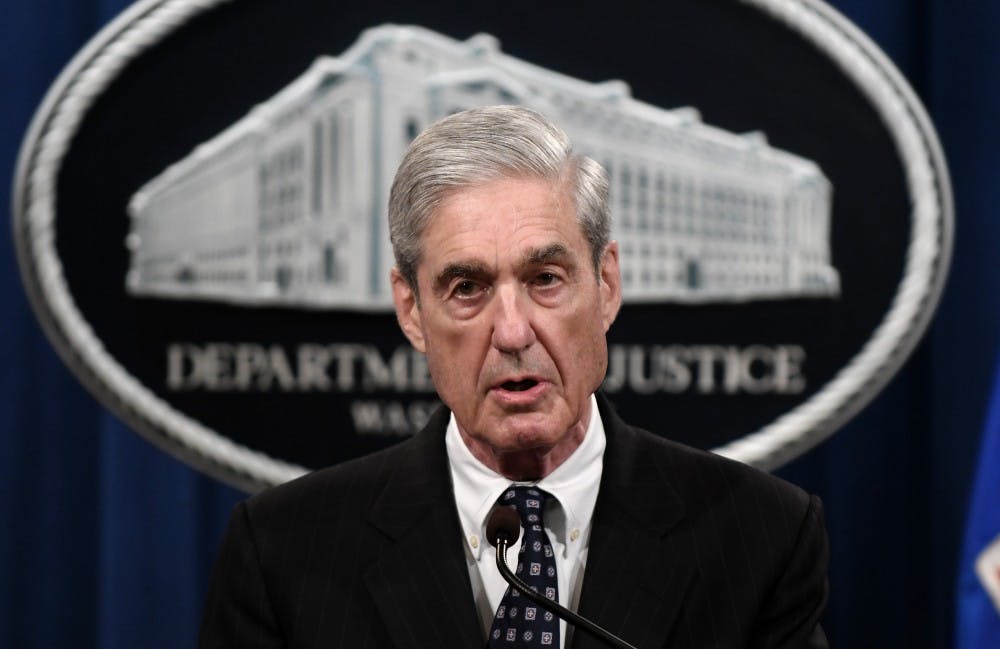By Chris Megerian
Los Angeles Times
WASHINGTON _ Special counsel Robert S. Mueller III said Wednesday that he does not intend to testify to Congress about his investigation into Russian election interference and whether President Trump obstructed justice.
"I do not believe it is appropriate for me to speak further," Mueller said, adding that his report on the investigation should "speak for itself."
But in brief remarks at the Justice Department, Mueller pointedly repeated a key section of the report, saying that "if we had had confidence that the president clearly did not commit a crime, we would have said so."
The report did not reach a conclusion one way or the other about whether Trump obstructed justice. Mueller noted that "charging the president with a crime was... not an option we could consider" because of Justice Department policy that a sitting president cannot be indicted.
The remarks were the first from Mueller, who studiously avoided public comments during his two years overseeing the investigation.
Mueller conducted his investigation in silence apart from a single-sentence written statement accepting the job. He never appeared publicly to announce indictments, and he did not speak to the media when he filed his report of his findings on March 22 or when the Justice Department released a redacted version of it on April 18.
According to the report, the investigation did not establish a criminal conspiracy between Trump's campaign and Moscow, but it showed how the president's team welcomed Russia's interference and expected to benefit from it. Moscow conducted a two-pronged covert effort during the 2016 campaign, including spreading divisive misinformation on social media and hacking and releasing Democratic Party emails.
Mueller did not reach a conclusion on whether Trump broke the law by obstructing justice. The special counsel's report outlined various ways the president tried to influence the outcome of the investigation, such as directing his White House lawyer to remove Mueller from his post.
The report also said Trump tried to limit the probe "to prevent further investigative scrutiny of the President's and his campaign's conduct."
When Mueller filed his report, Attorney General William Barr released a letter saying the evidence did not show that Trump had committed a crime by obstructing justice. Deputy Attorney General Rod Rosenstein, who appointed Mueller and supervised the investigation, agreed with that assessment.
Other outside legal experts, and many Democratic members of Congress, have said that some of Trump's actions could be considered obstruction.
The House Judiciary Committee has been seeking Mueller's public testimony about the investigation, but negotiations over when he might speak to the panel appear to have stalled. Judiciary Committee Chairman Jerrold Nadler (D-N.Y.) said recently that Mueller "wants to testify in private."
Mueller "doesn't want to participate in anything that he might regard as a political spectacle," Nadler said during an interview on MSNBC.




